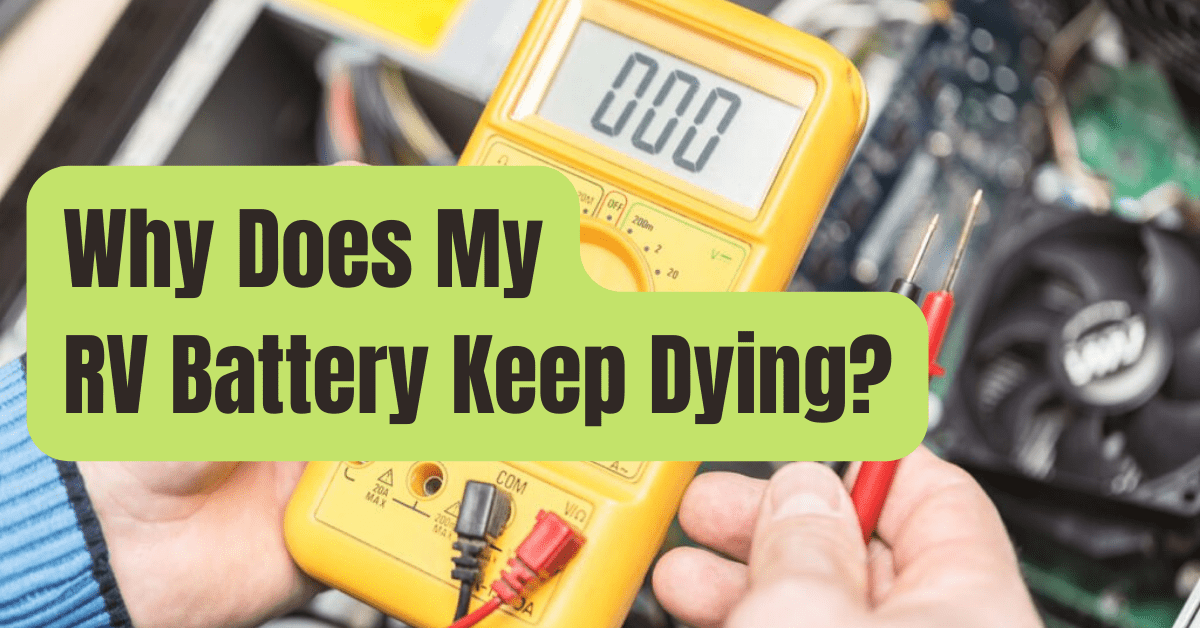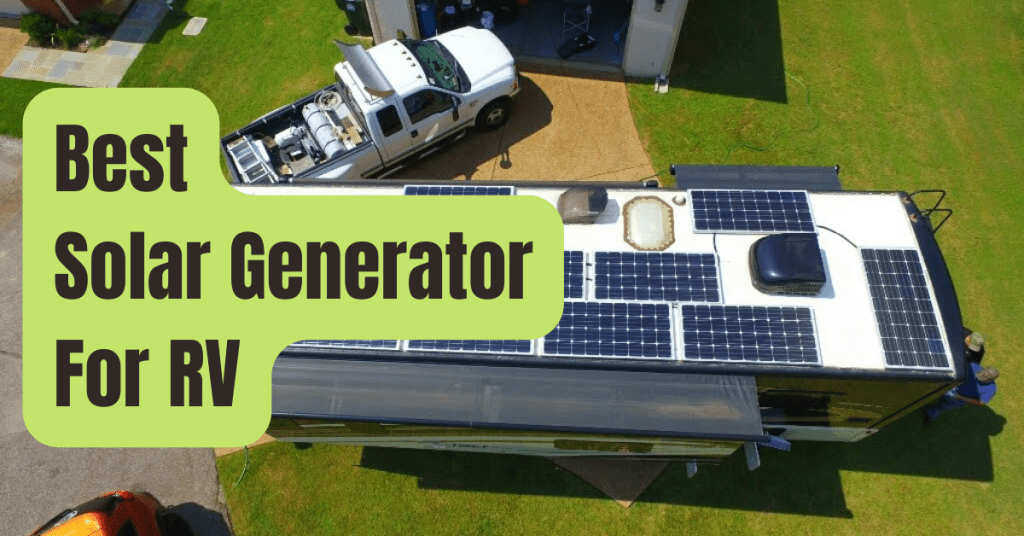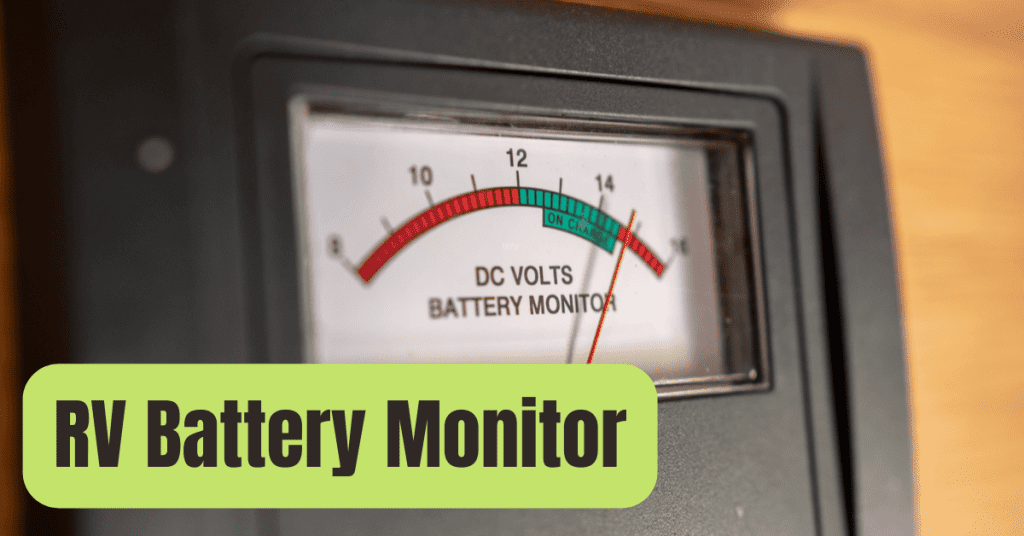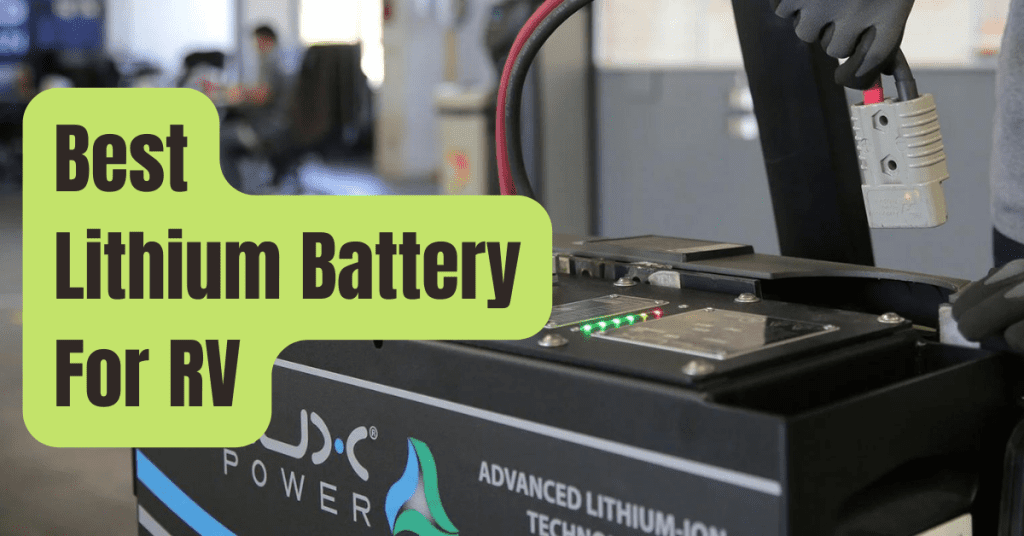The Most Common Causes of RV Battery Death
RV batteries store electrical energy in a perfect world.
RV batteries can succumb to sudden death in the real world for no apparent reason.
When we can use the slide-outs, RV jacks, electrical appliances, and other features that make RV camping fun, it makes the experience much more enjoyable.
A complex RV issue arises when the battery in the RV keeps dying.
On an RV vacation, finding solutions to challenging RV issues is probably the last thing you want to do.
Anyone who has ever wondered “why does my RV battery keep dying?” should read this article.
#1. You Neglected To Care For Your Battery.
Your RV likely has deep-cycle flooded lead-acid batteries if you’re like the majority of RV owners (6- or 12-volt).
To charge and store electricity, the lead plates in these batteries must be covered with electrolyte solution.
Distilled water must be periodically added to flooded lead-acid batteries to keep the lead plates submerged in liquid.
Check the fluid level by removing the battery’s top covers if your battery continues dying.
You must fill the plates with distilled water if you can see the tops of them.
Use an online application like RV LIFE Maintenance to keep track of all your RV maintenance and repairs.
You can maintain all of your documentation in one location, and you’ll also get timely alerts when maintenance is needed to protect you from having to pay for expensive repairs or maybe having a major accident.
#2. Overcharging Occurred In The RV Battery
Although overcharging an RV battery is very uncommon, it is nevertheless possible.
Batteries that have been overcharged will boil out their electrolyte solution, rendering the lead plates incapable of storing or charging power.
If this has occurred, you should try to salvage the situation by adding distilled water to your battery.
#3. The Battery Was Depleted.
Lead-acid batteries with flooded cells don’t like to be discharged beyond 50%.
There is a significant likelihood that your battery is now damaged and won’t retain a charge the way it once did if you have depleted it over 80 percent.
Before recharging, don’t discharge your deep-cycle battery more than 50% of the way to its full capacity.
#4. Not Enough Time Was Spent Charging The Battery.
When completely charged, deep-cycle RV batteries perform best at around 14 volts.
To completely charge them, it takes around two days.
It won’t be possible to reach the required amount of stored power in your RV batteries with the trickle charge it receives from your car while you go to your campground.
An improperly charged battery’s battery levels might show that it has 12.8 volts stored.
The volt measurement will only represent a surface charge if the battery hasn’t had enough time to fully charge.
As soon as there is a pull on the battery, a surface charge will cause power levels to rapidly drop.
Charge your battery for two days before heading to the camping to prevent this issue.
While you are camping, remember to maintain charging it using a generator or solar power.
#5. The RV Battery May Now Be Changed.
There is a significant possibility that the battery in your RV is beyond its prime and needs to be replaced if it is older than 6 years old, has been maintained, and has never been depleted below 80%.
When maintained correctly, deep-cycle flooded lead-acid batteries typically have a lifespan of six years.
Your battery will be damaged and lose a lot of life if you discharge it over 80%.
Being a member of the traveling enthusiast community is one of the nicest things about RVing.
People may interact with other RVers online via the iRV2 forums and learn different viewpoints on all aspects of RVing, such as goods, locations, RV customizations, and much more.










